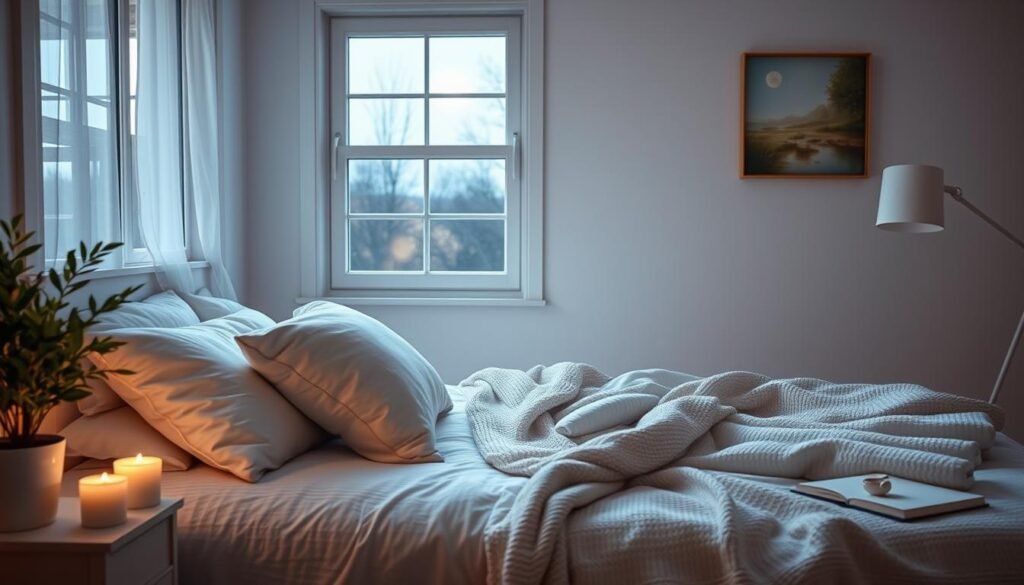Link Between Sleep Issues and Depression
The relationship between sleep disturbances and depression is complex, often creating a cyclical pattern that can have significant effects on both mental and physical health. Research reveals a bidirectional connection, where sleep issues are both a symptom of depression and a contributing factor to its development. People experiencing depression often struggle with falling asleep, staying asleep, or waking up too early, resulting in disrupted sleep patterns that worsen their depressive symptoms. Conversely, chronic sleep deprivation or insomnia can increase the risk of depression by affecting neurobiological processes that regulate mood.

Sleep plays a critical role in emotional regulation and cognitive functioning, both of which are impaired in individuals suffering from depression. Disrupted sleep can heighten emotional reactivity, make decision-making more difficult, and intensify feelings of hopelessness. Additionally, poor sleep can affect neurotransmitters like serotonin and dopamine, which are essential for mood regulation, thereby perpetuating the cycle of depression and sleep disturbances. Understanding this relationship is key to addressing both aspects effectively through treatments like cognitive-behavioral therapy for insomnia (CBT-I) and prescribed medications.
Health Risks Associated With Depression and Sleep Disturbances
The combination of depression and sleep disturbances can lead to various health risks. Disrupted sleep patterns weaken the immune system, making individuals more vulnerable to illness. Chronic sleep deprivation has been linked to serious health issues such as heart disease, diabetes, and obesity. Moreover, the cognitive effects of both depression and poor sleep can impair memory, concentration, and decision-making, making it difficult to perform daily tasks effectively.
Furthermore, the emotional toll of insufficient sleep can exacerbate feelings of despair, reinforcing depressive symptoms. People dealing with both depression and sleep disturbances may also be at an increased risk of developing additional mood disorders, such as anxiety or bipolar disorder, as the neurochemical imbalances caused by these conditions can worsen one another. This feedback loop underscores the need for a comprehensive approach to treatment that addresses both mental health and sleep issues.
Getting Help for Depression and Sleep Issues
Seeking professional help is crucial when managing depression and sleep disturbances. Mental health professionals, including psychiatrists and psychologists, can provide valuable insights and recommend treatment plans tailored to individual needs. These professionals can diagnose underlying causes, provide therapy, and suggest medications to address both depressive symptoms and sleep difficulties.
In addition to therapy, medications like selective serotonin reuptake inhibitors (SSRIs) or tricyclic antidepressants are commonly prescribed to help manage depression and improve sleep quality. It’s essential to follow healthcare providers’ recommendations carefully and have regular check-ins to ensure optimal results.
Support groups can also be a valuable resource, offering emotional support and practical advice. Connecting with others facing similar challenges can reduce isolation, provide coping strategies, and enhance the sense of community. These groups create a safe environment to share experiences and reinforce the importance of seeking help.
Tips for Better Sleep
Improving sleep during depression involves several strategies. One key approach is to establish a consistent bedtime routine. Going to bed and waking up at the same time every day helps regulate the body’s internal clock, making it easier to fall asleep naturally. Calming activities before bed—such as reading, taking a warm bath, or practicing relaxation techniques like deep breathing or meditation—can signal to the body that it’s time to unwind.
Creating a sleep-friendly environment is also essential. Consider factors like room temperature, lighting, and comfort when setting up your bedroom. Making these adjustments can significantly impact sleep quality. Additionally, reducing exposure to screens before bedtime is important, as the blue light emitted from devices can interfere with melatonin production, a hormone crucial for sleep regulation.
Regular physical activity is another effective strategy for improving both mood and sleep. Exercise can reduce symptoms of depression and anxiety while promoting better sleep. Aiming for at least 30 minutes of moderate exercise, such as walking, cycling, or yoga, most days of the week can yield positive results. However, it’s important to avoid vigorous exercise close to bedtime, as it can be stimulating and disrupt sleep.
Summary
The relationship between sleep disturbances and depression is multifaceted and impactful. Individuals experiencing depression often struggle with disrupted sleep patterns, which, in turn, exacerbate their symptoms. Addressing both depression and sleep issues simultaneously can significantly improve overall well-being. The consequences of untreated sleep disturbances and depression can lead to serious health risks, including heart disease, diabetes, and obesity.
It is crucial for individuals experiencing these symptoms to seek help early to avoid further complications and enhance long-term health outcomes. Effective treatment options—ranging from therapy and medication to lifestyle changes and relaxation techniques—can help individuals manage both conditions. By working closely with healthcare providers to create a personalized treatment plan, individuals can regain control over their health and improve their quality of life.
For further information on the effects of sleep disturbances on mental health, check out these resources: